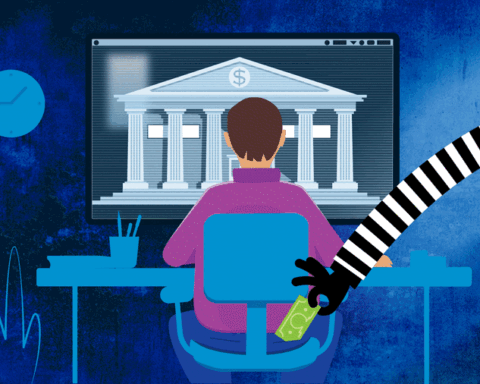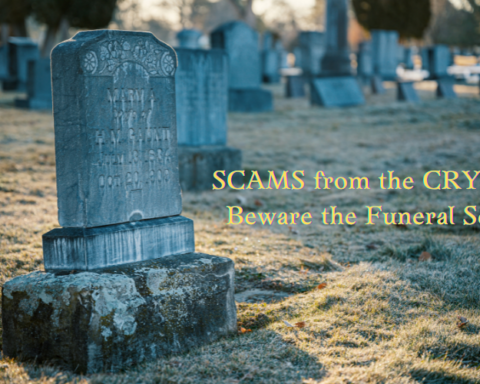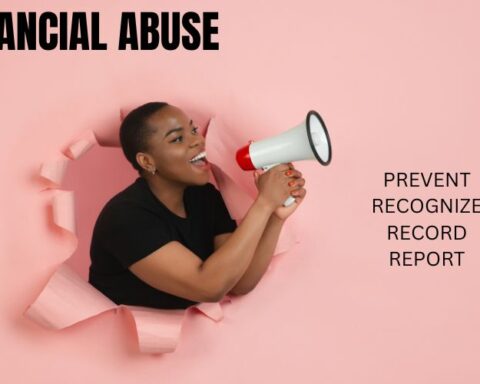Original Article | Forbes Magazine
We stumbled across this piece in Forbes Magazine, originally titled “Seniors Beware, Scammers Want Your Money.” Forbes writer Cheryl Winokur Munk offered some useful list of scams to avoid and tips for identifying them. We thought the article and tips were share worthy as they contain some valuable information.
When it comes to financial fraud, seniors are inherently an at-risk group.
But they’ve got potentially more to worry about during the pandemic for several reasons, including the increased frequency in which they are using online financial tools and other fintech products.
Consider research from Zelle that shows 82% of seniors are using online banking more frequently and 55% are using mobile banking more often since the start of the pandemic. What’s more, 91% of seniors are using electronic communication more consistently, the research found.
Many seniors are especially isolated and lonely amid the ongoing pandemic, boosting the potential they’ll fall prey to digital scams and fraud. To help combat the problem, Congress has introduced legislation to help seniors who are fraud victims recover financial losses.
“The majority of day-to-day scams revolve around consumers sending money to people they don’t personally know for products or services that don’t actually exist,” says Jamey Boone, Zelle VP of fraud risk prevention. “In today’s environment, scammers may be pedaling personal protective equipment such as masks, hand sanitizer and cleaning products on the Internet. Scammers are also advertising non-existent puppies for sale online, preying upon people seeking companionship while quarantining at home,” he says.
Seniors should be particularly wary of people who send money, sometimes by check, and then ask the recipient to send a portion of it to someone else, he says.
The scammer may be using you to move stolen money. Another tip: Never give personally identifiable information to anyone who approaches you via social media, email or phone, he says. And be sure to only use payment apps with those you trust. Using a payment app to purchase items, especially scarce goods and services from unofficial sources such as Craigslist, Facebook Marketplace, or websites you’re unfamiliar with, is extremely risky, he says.
Here at StayConnectedNH we scour the internet for the latest scams. We thought we would share this segment from a Forbes piece – as it nicely breaks down the various scams out there.
StayConnectedNH
In addition to these tips, here are some of the latest scams to avoid:
- Phishing scams. Phishing occurs when a cyber thief attempts to gather personal information via email, text, website or social media. There have been a host of these scams related to Covid-19. These communications could come from scammers pretending to be the CDC, the World Health Organization, or some other seemingly official agency. “A coronavirus-themed email that seeks personal information like your Social Security number or login information is a phishing scam. Legitimate government agencies won’t ask for that information. Never respond to the email with your personal data,” Norton, the cyber-security provider, warns.
- Stimulus-check scams. With a batch of federal stimulus checks just recently sent out and the possibility of another round of stimulus checks being bandied about by Congress, it’s especially important to understand that the IRS won’t call you about your stimulus money, nor will the agency send you an over-payment and ask for money back in cash, via gift card or through a money transfer. If you have questions about your stimulus check you can always reach out to the IRS by phone or check out the online frequently asked questions about economic impact payments. Scammers might also claim to be from the Census bureau, Medicare or Medicaid or the Social Security Administration, among other government agencies. These organizations won’t call, email or text to verify your information or to offer to help you obtain medicine or equipment. So if you get calls or emails to this effect, hang up or delete the email.
- Fake charities. There’s no shortage of bad apples pretending to be reputable charitable organizations. Use this IRS search tool to check if a charity you’re considering is a legitimate tax-exempt organization. Also, never donate in cash, by gift card or by wiring money, the Federal Trade Commission advises. You can also use websites like Charity Navigator, Charity Watch and the Better Business Bureau to find reputable charitable organizations.
- Contact tracing scams. Legitimate contact tracers, who work for state health departments, are faced with the task of contacting anyone who may have been exposed to coronavirus. However, the situation has left the door open for scammers to prey on innocent victims, making it hard to tell the difference between friend and foe. Legitimate contact tracers may call, email or text or visit your home to collect information, according to the FTC. They may ask for your name and address, health information and the names of places and people you have visited. Scammers, however, may ask for sensitive personal information such as your Social Security number, financial information or your immigration status. They may even ask for payment, which legitimate contract tracers would never do. Don’t provide this information or click on any links or download anything sent by someone claiming to be a contact tracer, the FTC advises. If you’re in doubt, check with your state’s health department to see if there’s a way to ensure the legitimacy of the person contacting you.
- Test kits or vaccination offers. Shy away from test-kit and coronavirus treatment offers, that, of course, come with a cost, and are likely not approved by the FDA or accurate. There are plenty of ads for these dubious kits or for products that purport to mitigate or treat the deadly virus. Steer clear.
If you run into trouble or a suspected scam, be sure to report it to the FTC using this link.












